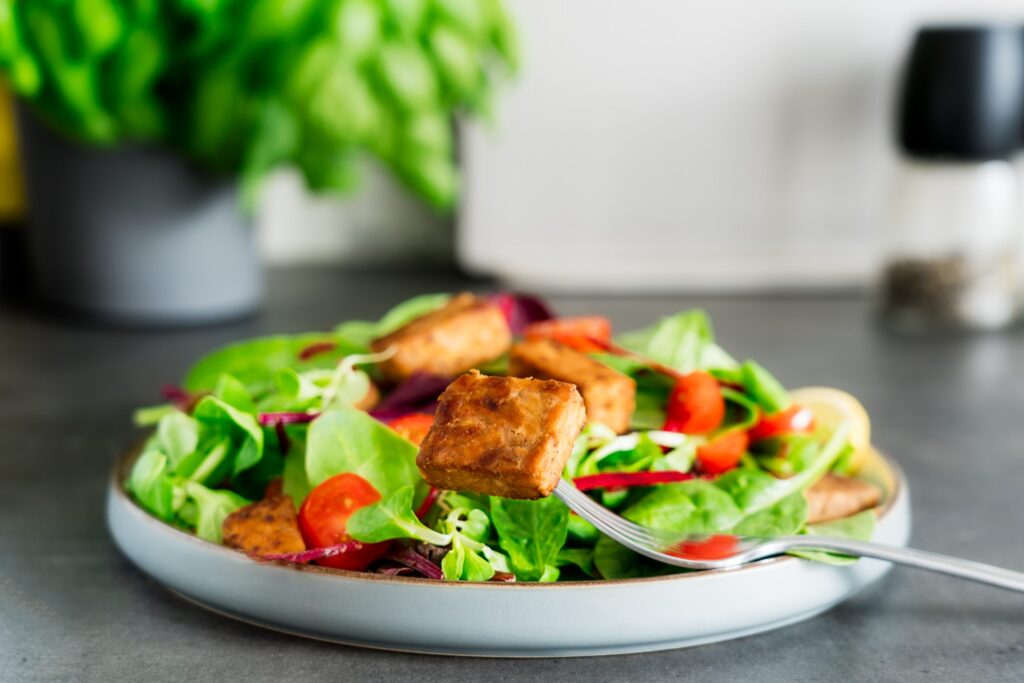
Gates Foundation and Novo Nordisk have extended the Acetate Consortium initiative by another two years with a $25.6M investment to turn CO2 into proteins.
It was in June 2023 that Bill Gates’s philanthropic foundation teamed up with the company behind Ozempic and NovoRapid to set up a 200 million kroner ($29M) project to produce nutritious food from carbon dioxide.
Now, Gates Foundation and Novo Nordisk have renewed the initiative, called the Acetate Consortium, for another two years, pumping in up to 162.2 million kroner ($25.6M) to scale the technologies developed in the first phase and produce food prototypes.
“When the consortium began its work two years ago, making food derived from CO2 seemed like something taken from a science fiction movie. Within the next two years, we can expect to see actual prototypes of food products that will be tested by consumers,” said Claus Felby, VP of agrifood at the Novo Nordisk Foundation, which owns the eponymous pharmaceutical giant.
Acetate Consortium developed acetate-eating microbes in phase one

The idea behind the project is to produce alternatives to planet-harming animal proteins via fermentation. But instead of using sugar as a feedstock for the microbes, the consortium has sought ways to replace it with CO2-derived acetate, or vinegar.
By eschewing sugar, the process can free up vast swathes of agricultural land, aligning with the Acetate Consortium’s aim to mitigate climate change as well as food insecurity.
The acetate is procured from captured carbon through electrochemical processes, turning emissions into valuable proteins that can potentially feed over a billion people annually.
In phase one, the consortium developed an integrated platform to convert CO2 into acetate for single-cell and precision proteins. Its members developed microbial strains that grow on 100% acetate and contain more than 40% protein.
In addition, this stage saw the completion of pilot facilities at Aarhus University in Denmark for individual acetate production modules. Moreover, the consortium identified electricity and infrastructure as the two key cost drivers of the process.
In the second phase, the group will comprise 10 partners, such as Novo Nordisk Foundation’s CO2 Research Center, Novonesis, Orkla Foods, Topsoe, and several universities. It also includes Spora, the food innovation centre founded by Rasmus Munk, head chef at Alchemist, a two-Michelin-starred restaurant in Copenhagen.
Spora’s role would be to make the results “taste more like dinner than science”. “The technology developed in phase one can reshape how we produce food, and I look forward to turning it into nutritious and above all delicious ingredients for the future,” said Munk, who was voted the world’s best chef in 2024.
Second phase will scale up tech and develop food prototypes

Gates Foundation and Novo Nordisk’s renewal of the project will allow its members to focus on optimising and scaling the technologies and methods, as well as developing and testing food prototypes in the second phase.
As part of this next stage, the consortium will model the technical, economic, and environmental impact of the technological solution it has developed.
According to Novo Nordisk, Denmark has a “strong tradition of collaboration” between industry and researchers within food and biosolutions, and the country’s gastronomic space is a leader in experimenting with food.
Munk and Spora’s involvement is a sign of that. “The goal is to develop delicious, protein-rich everyday foods with a low impact on the planet – and broad appeal, especially for families in the communities that need it the most,” said Spora CEO Mette Johnsen.
“One of Denmark’s strengths is the ability to bridge research, industry, and gastronomy. This makes us an ideal test country for new technologies such as this, where CO2 can be used as a raw material for future food,” said Felby.
“Here, we can develop and test prototypes in close collaboration with researchers, companies, and chefs, and share our findings to benefit communities and industries worldwide,” she added.
Denmark is already a leader in the protein transition. Its government was the world’s first to introduce a carbon tax on meat and dairy production and a national action plan for plant-based food. And it’s pushing for an EU-wide version of the latter during its ongoing presidency of the European Council.
Novo Nordisk, meanwhile, has already been at the forefront of food industry disruption through the success of its GLP-1 drugs Ozempic and Wegovy, and has also invested in a $7.6M AI-led project to develop less processed plant proteins.
The Acetate Consortium isn’t the only initiative turning carbon dioxide into proteins. Solar Foods, Air Protein, LanzaTech, Jooules, Aerbio, and Unibio are among several startups leveraging gas fermentation for food production.
The post Bill Gates & Ozempic Maker Renew Project to Turn Carbon Into Food with $26M Investment appeared first on Green Queen.
This post was originally published on Green Queen.